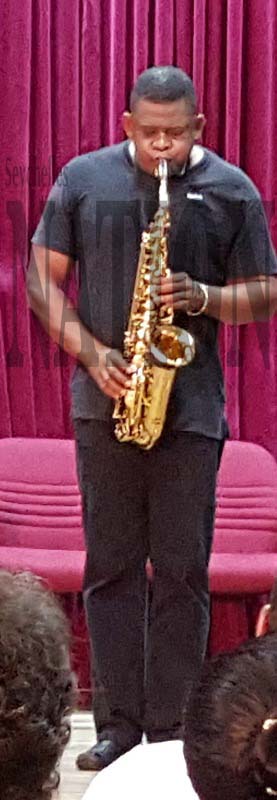Baha’is celebrate birthday of the Bab and Baha’u’llah |04 November 2016
On November 1 and 2, millions of Baha’is in almost every country of the world celebrate the twin birthdays of the Bab, the Gate or Herald and Baha’u’llah ‘Glory of God’, born in 1819 and 1817.
In Seychelles, the Baha’I community celebrated the occasion with prayers, meditations, songs, talks, poems, followed by a social gathering.
Bahá'u'lláh
For the Baha’is worldwide, He is a Messenger or Manifestation of God, who once again inspires and educates mankind on the Divine Will.
Childhood and youth
Bahá'u'lláh led a princely life as a young man, son of a Minister in the Shah’s court. Bahá'u'lláh declined the ministerial career open to Him in government, and chose instead to devote His energies to a range of philanthropies which had, by the early 1840s, earned Him widespread renown as ‘Father of the Poor’. This privileged existence swiftly eroded after 1844, when Bahá'u'lláh became one of the disciples of the Bab, his Herald.
The Holy Spirit descends
In 1852, one of the most notorious underground dungeons in the Near East was Tehran’s ‘Black Pit’. Prisoners huddled in their own bodily wastes, languishing in the pit’s inky gloom, subterranean cold and stench-ridden atmosphere. In this grim setting, Bahá'u'lláh, Glory of God, a descendant of Jesse and Abraham through his third wife Katurah; with his feet in stocks and a 100-pound iron chain around his neck, received His Divine revelation as an angel descended upon Him.
“I was but a man like others…. when lo, the breezes of the All-Glorious were wafted over Me, and taught Me the knowledge of all that hath been. This thing is not from Me, but from One Who is Almighty and All-Knowing. And He bade Me lift up My voice between earth and heaven”.
Divine knowledge
He did not attend school and had a rudimentary education but his vast knowledge and wisdom was not acquired: He says:
“Thou knowest full well that We perused not the books which men possess and We acquired not the learning current amongst them, and yet whenever We desire to quote the sayings of the learned and of the wise, presently there will appear before the face of thy Lord in the form of a tablet all that which hath appeared in the world and is revealed in the Holy Books and Scriptures.”
Baha’u’llah had the power of miracle and many such accounts are given by his disciples. Baha’is do not put emphasis on these as they are only of value to those who experience or believe in them!
Guidance in the form of Sacred Writings
Bahá'u'lláh’s experience in the Black Pit set in motion a process of religious revelation which, over the next 40 years, led to the production of hundreds of books, tablets and letters – which today form the core of the sacred scripture of Bahá'í Faith. In those writings, He outlined a framework for the reconstruction of human society at all levels: spiritual, moral, economic, social, political. He renewed the spiritual and moral philosophy that is eternal and timeless but also addressed those timeless theological questions that have plagued humanity. From His words, the worldwide community of Bahá'u'lláh draws its inspiration, discovers its moral bearing and derives creative energy.
Suffering and sacrifice
Precursor to the Bahá'í Faith, the Bábi movement swept Iran like a whirlwind – and stirred intense persecution from the religious establishment. After the execution of its Founder the Báb at the young age of 30 after 5 years of terrible conditions of imprisonment, some 20,000 disciples of the Bab, men, women and children were tortured and put to death in the most horrendous ways and the streets of Persia flowed with the blood of these selfless martyrs. If they did not recant their faith, disciples were blown from mouths of cannons, flogged to death, bastinadoed, had their heads smashed with sledge hammers, bodies set alight with candles from holes dug in their flesh, children cut open on the stomachs of their mothers…
The Exile of Bahá'u'lláh
Upon His release and after the scourge of the bastinado, Bahá'u'lláh was banished from His native land, the beginning of 40 years of exile, imprisonment and persecution from sea to sea, mountain to mountain. From Iran to Iraq, to Constantinople, Adrianople and finally to Akka in Palestine.
Summons to the Kings and clergy
From 1867, Bahá'u'lláh wrote a series of letters to the world leaders and clergy of His time. He urged the world's leaders to pursue justice “…for I have pledged Myself not to forgive any man’s injustice”. He called for general efforts at disarmament and urged the world's rulers to band together into a commonwealth of nations, while respecting national cultures and diversity. Only by acting collectively against war, re-defining the national boundaries, and an equitable use of the world’s economic resources, He said, could a lasting peace be established.
Acre had no source of fresh water, and the air was popularly described as being so foul that overflying birds would fall dead out of the sky. The floor of the tiny prison cell was filthy and even the black bread they were given, inedible.
He writes: “The Ancient Beauty hath consented to be bound with chains that mankind may be released from its bondage, and hath accepted to be made a prisoner within this most mighty Stronghold that the whole world may attain unto true liberty….”
In 1892, Bahá'u'lláh, still a prisoner of the Persia and Ottoman empires passed away. His remains were laid to rest in Bahji, Israel. For Bahá'ís, this spot is a holy site and a place of pilgrimage.
Contributed





